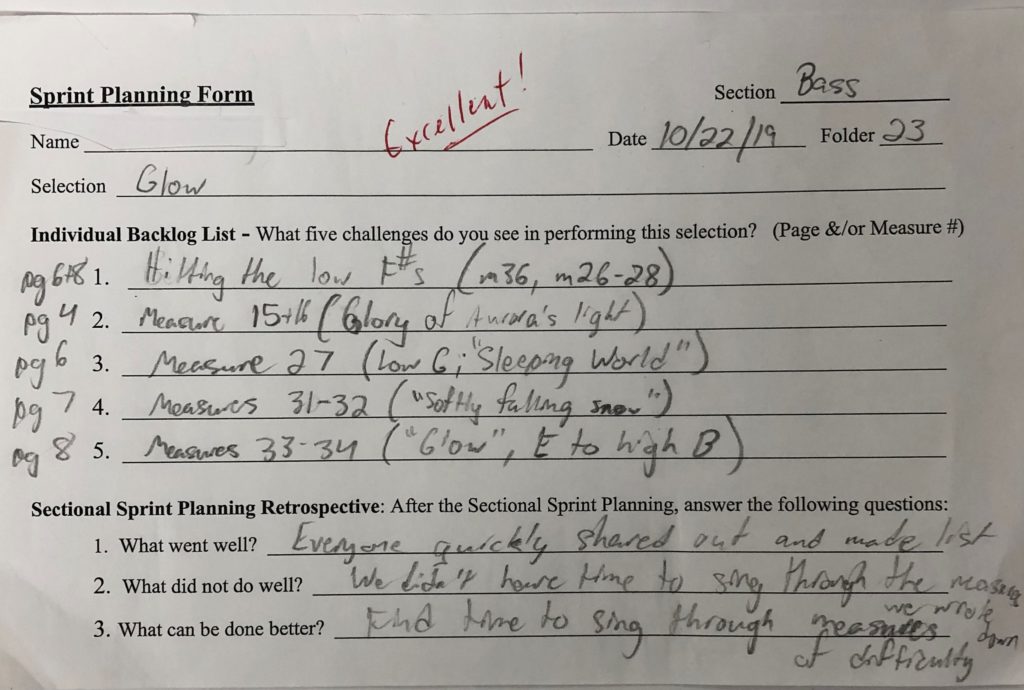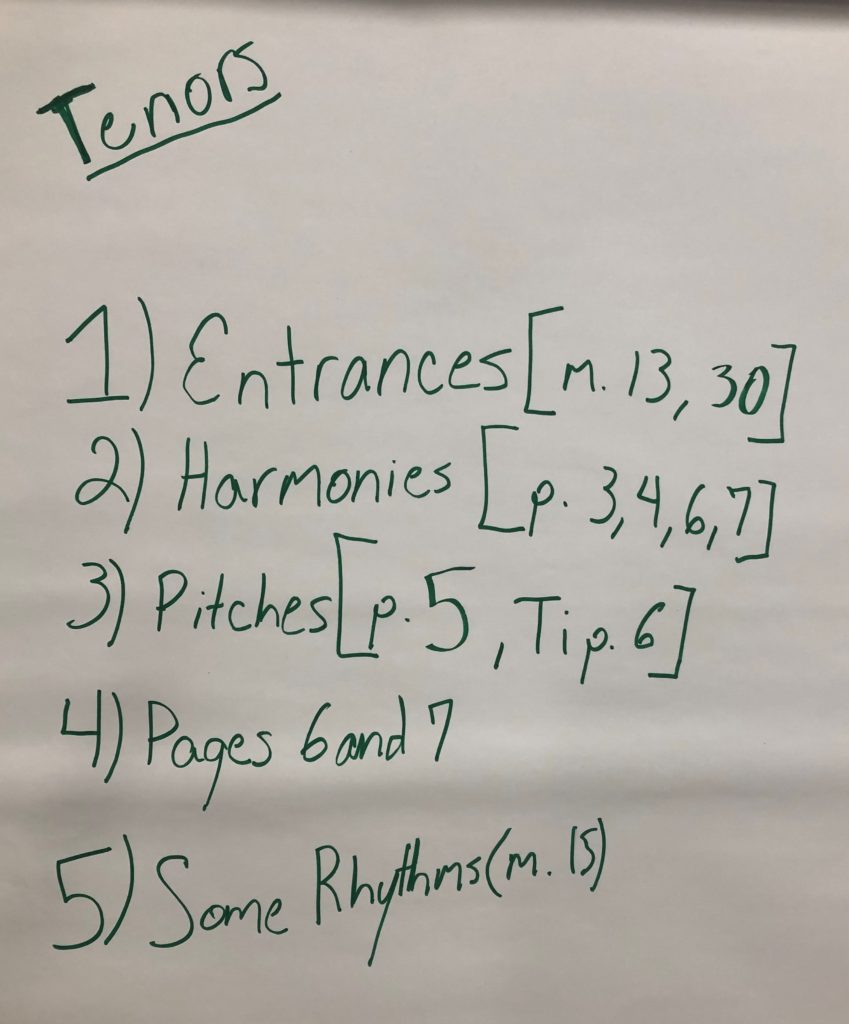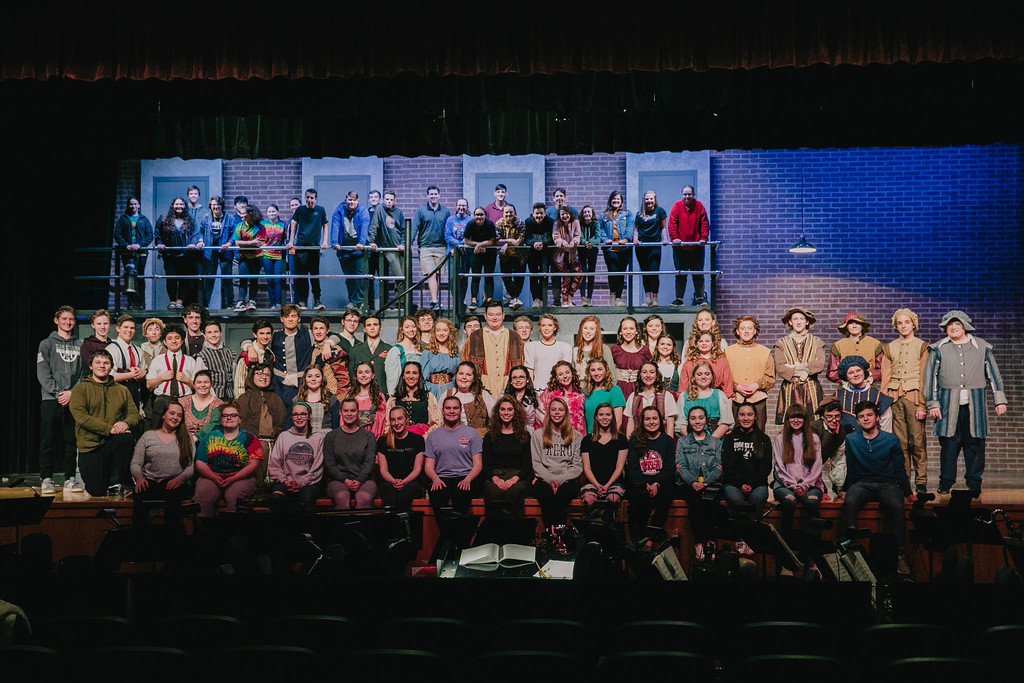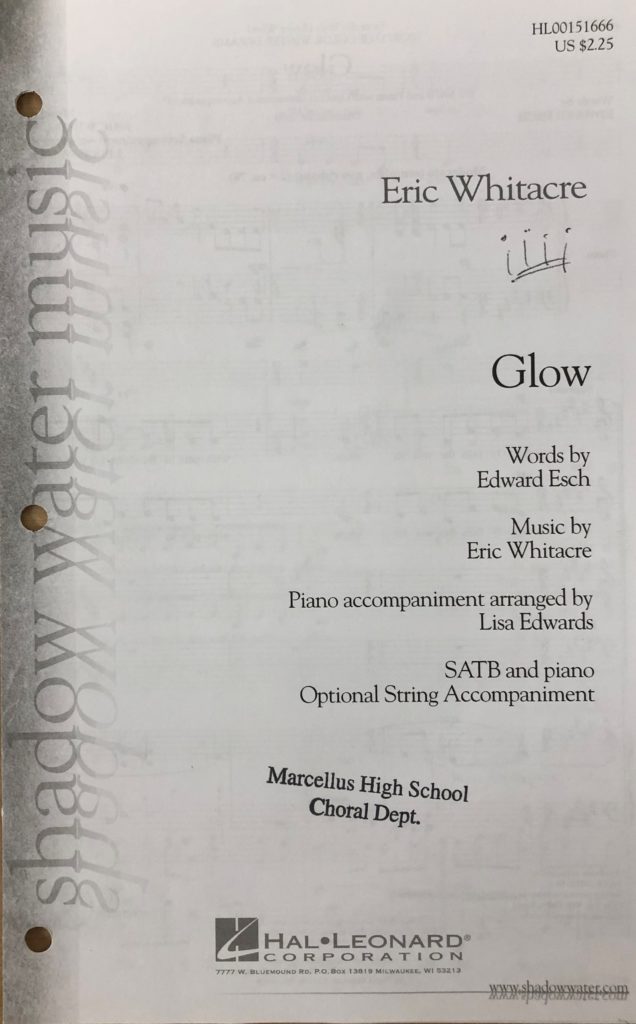“The real act of discovery consists not in finding new lands
but seeing with new eyes”.
Marcel Proust
This past weekend here at Marcellus High School, we presented the musical KISS ME, KATE. The cast, crew, and pit did an outstanding job – what a challenging book! As we prepared for the Saturday matinee, the director told the group that each performance would be unique and different – that the audience would be diverse and respond to the musical in different ways. She challenged the cast to continue to develop their character and find a deeper understanding of the story, even though they were performing the same lines and singing the same songs.
The cast, crew, and pit of KISS ME, KATE
The director’s comments reminded me of the opening quote above. Stick to your lines, perform as rehearsed, but look with new eyes – seek out new possibilities in what is known. I now realize I do the same in the classroom. I stick to proven/successful teaching methods, I follow my lesson plan/rehearsal outline, but I also look for ways teaching can reveal new understanding and engage my students.
New Possibilities in What is Known
Throughout my career, I continue to search for new ways to engage my students in the classroom actively. I make every effort to learn new methodologies and approaches that fit well with time tested teaching strategies. Edwin Gordon, in his book, Learning Sequences in Music: Skill, Content, and Patterns challenges educators to look at music learning and audiation with “new eyes.” He writes, “audiation is to music what thinking is to language” (Gordon. 1997, p.46). I not only want my students to be musically competent through reading, understanding, and hearing music, but to think musically. To audiate and activate their musical intelligence.
Agile Development Instructional Framework (ADIF)
The Agile Development Instructional Framework (ADIF) is the result of my work. It offers a clear outline of steps and skills in the music classroom that facilitates ongoing student problem solving, collaboration, and accountability. I have found that using the Agile Development principals in the music classroom is a valuable addition to traditional teacher-led classroom instruction. It is not a replacement. Through the application of ADIF, my students have the opportunity to expand their learning beyond the traditional music environment. The students become aware of their responsibility for the subject content, the rehearsal process, and their active participation in the music classroom.
The Known, and Seeking New Possibilities
The known for me is the planning required for instruction. The New Possibilities are to find ways to involve the students in thinking and planning for learning. Below are a few examples or possibilities I created to reinforce to the students what is needed to learn a song and prepare for a lesson/rehearsal. I want my ensembles to become aware of the whole lesson process, and not just respond to my instructions: The Paradox of Learning.
Possibility #1 – Have the students score study a concert selection such as GLOW by Eric Whitacre through YouTube, listening to recordings, and sight-reading.
Possibility #2 – Have the students mark in their music or use the form below and list his/her top five challenges and observations. Be specific.

Bass Section Planning for GLOW
Possibility #3 – Have the students come together in SATB sections and collaboratively create a skills chart/rehearsal plan for GLOW. This list will help the students prioritize the needed skills, record the group’s progress, and keep track of their remaining work.

Tenor Section Chart for GLOW
Possibility # 4 – (create your own)
Conclusion: New Possibilities in the Known
The New Possibilities for me is to find ways to get the students involved in the planning. The known is that I must plan and sequence music experiences for my students. The three student planning possibilities listed above is my attempt to engage my students in the learning process actively – to think musically, to learn to audiate. I want my students and to be aware of their active participation in the classroom, the rehearsal process, and their responsibility to the ensemble.
It has been a few days since we closed our show, and I have noticed that a number of the cast, crew, and pit members are walking a bit taller, a smile on their face, and with a bit more confidence. It is s my hope that they have taken the words of our director to heart, and found some new possibilities and confidence in their abilities.
“The real act of discovery consists not in finding new lands
but seeing with new eyes”.
Marcel Proust
Google Meet
Our next online meeting will be held on Monday, March 16, at 7:00 PM Eastern Standard Time, and will last for about a half an hour. If you are interested, you can email me at brianoackles@gmail.com or use the link below to join the meeting.
https://meet.google.com/bsk-wfrg-dxv?hs=122
References:
Ackles, Brian O., 2018. Agile Development Instructional Framework (ADIF): A New Strategy for Student-Centered Music Education. Choral Journal, September 2018. Vol. 59, No. 2
Gardner, Howard. Frames of Mind: the Theory of Multiple Intelligences. New York: Basic Books, 2011.
Gordon, Edwin. Learning Sequences in Music: Skill, Content, and Patterns. Chicago: GIA, 1997.




Leave a Reply
You must be logged in to post a comment.